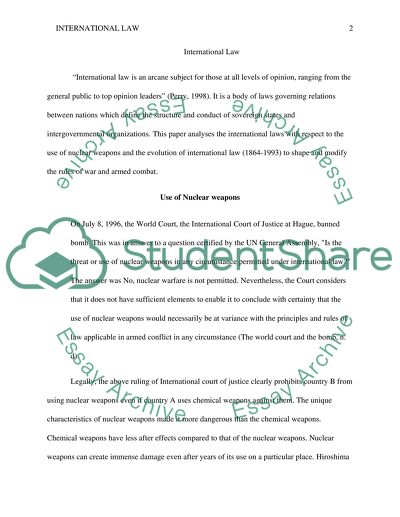Cite this document
(“Final exam - international law Essay Example | Topics and Well Written Essays - 1500 words”, n.d.)
Retrieved from https://studentshare.org/environmental-studies/1419244-final-exam-international-law
Retrieved from https://studentshare.org/environmental-studies/1419244-final-exam-international-law
(Final Exam - International Law Essay Example | Topics and Well Written Essays - 1500 Words)
https://studentshare.org/environmental-studies/1419244-final-exam-international-law.
https://studentshare.org/environmental-studies/1419244-final-exam-international-law.
“Final Exam - International Law Essay Example | Topics and Well Written Essays - 1500 Words”, n.d. https://studentshare.org/environmental-studies/1419244-final-exam-international-law.


